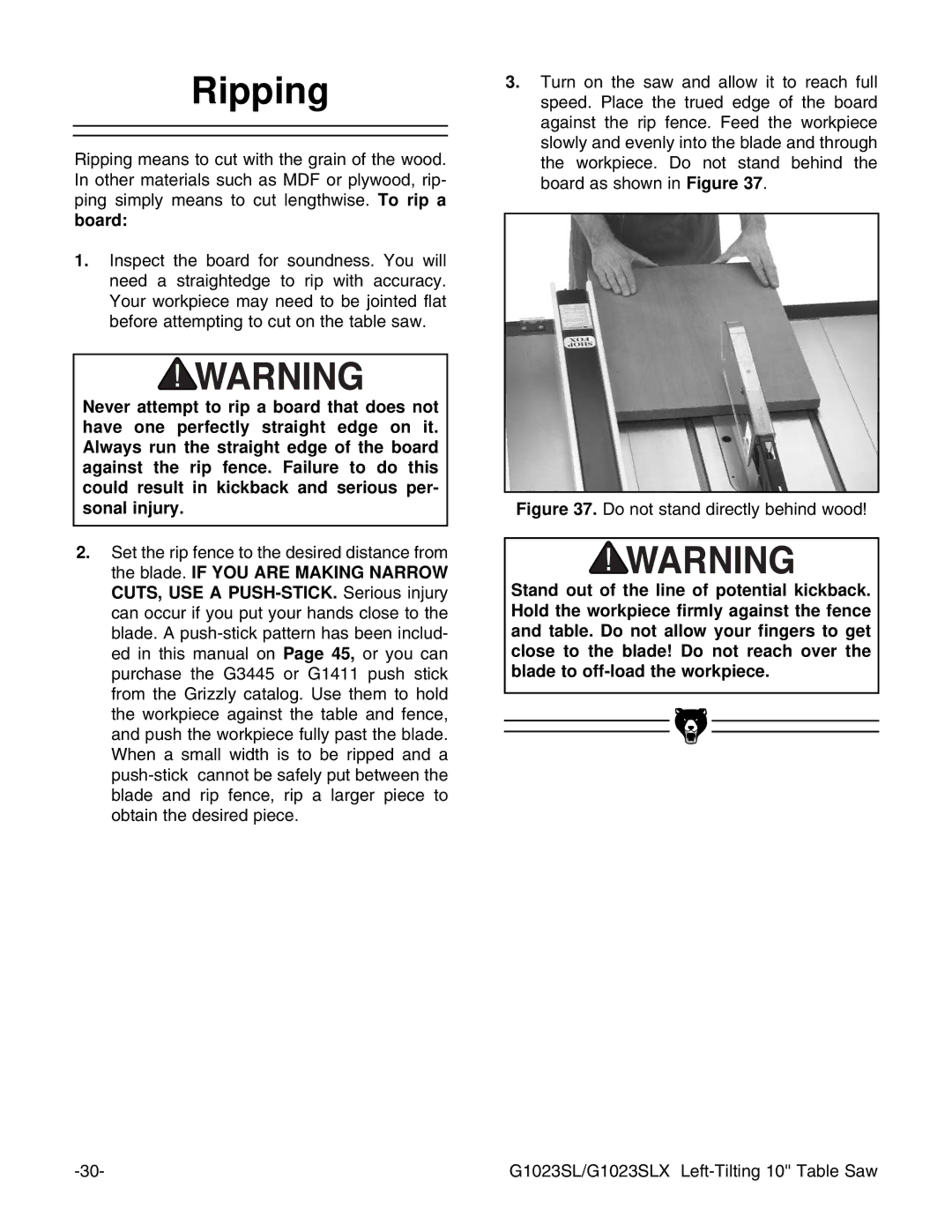
Ripping
Ripping means to cut with the grain of the wood. In other materials such as MDF or plywood, rip- ping simply means to cut lengthwise. To rip a board:
1.Inspect the board for soundness. You will need a straightedge to rip with accuracy. Your workpiece may need to be jointed flat before attempting to cut on the table saw.
Never attempt to rip a board that does not have one perfectly straight edge on it. Always run the straight edge of the board against the rip fence. Failure to do this could result in kickback and serious per- sonal injury.
2.Set the rip fence to the desired distance from the blade. IF YOU ARE MAKING NARROW CUTS, USE A
3.Turn on the saw and allow it to reach full speed. Place the trued edge of the board against the rip fence. Feed the workpiece slowly and evenly into the blade and through the workpiece. Do not stand behind the board as shown in Figure 37.
Figure 37. Do not stand directly behind wood!
Stand out of the line of potential kickback. Hold the workpiece firmly against the fence and table. Do not allow your fingers to get close to the blade! Do not reach over the blade to
G1023SL/G1023SLX |
